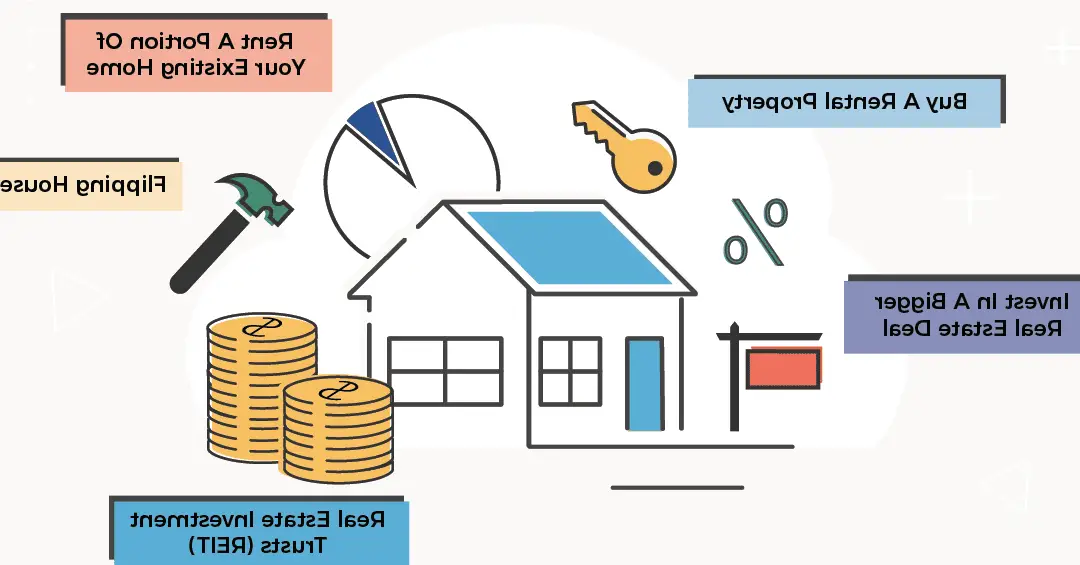Investing in real estate has long been considered a reliable and lucrative way to build wealth and secure a comfortable future. As property values appreciate over time, many investors often wonder if they can take advantage of their investment by inhabiting the property themselves. This question has sparked a lively debate among real estate enthusiasts and financial experts alike. Can you really live in your investment property? In this article, we aim to debunk the myth surrounding the topic and explore the various factors that come into play when considering this seemingly contradictory idea.
Traditionally, investment properties have been treated as assets separate from our primary residences, serving as sources of rental income or potential capital gains when sold. However, as the real estate market evolves and lifestyle preferences shift, it’s only natural for investors to question the possibility of living in their own investment property. After all, why not benefit from the property’s appreciation while enjoying the comforts of home?
While living in an investment property may sound enticing, it’s essential to consider the potential drawbacks and limitations. Are there legal frameworks to navigate? Can you balance the financial implications? How might this impact your tax strategy? We’ll address these crucial aspects and more to provide a comprehensive analysis of whether living in your investment property is a practical and viable option.
Whether you’re a seasoned investor or just diving into the world of real estate, this article aims to shed light on the often-confusing topic of living in your investment property. By examining the pros and cons, legal considerations, and financial implications, we aim to equip you with the knowledge to make informed decisions regarding your real estate investments.
So, if you’re eager to uncover the truth behind this debated concept, join us as we debunk the myth and explore the practicality of residing in your own investment property. Let’s dive into the fascinating world of real estate and discover if you can truly turn your investment into a home sweet home.
Is it possible to reside in your investment property?
Find out if living in your investment property is a feasible option before making any decisions or commitments.
1. Residing in Your Investment Property: Can It Be Achieved?2. Is Occupying Your Investment Property Possible? 3. Possibility of Living in Your Investment Property: Is It Viable?
Many investors wonder whether it is possible to reside in their investment property. Let’s explore this topic in more detail.
1. Residing in Your Investment Property: Can It Be Achieved?
Investors often consider the idea of living in their investment property. However, whether it can be achieved depends on various factors. One of the main factors is the type of property. For example, if you have invested in a single-family home or a multi-unit property with one unit available for occupancy, then residing in your investment property is more feasible compared to investing in a commercial property or a large apartment complex.
2. Is Occupying Your Investment Property Possible?
While it is technically possible to occupy your investment property, there are certain considerations to keep in mind. One important factor is the local laws and regulations. Some areas have strict zoning laws that restrict the use of properties for residential purposes. It is crucial to understand these regulations before attempting to reside in your investment property. Additionally, if you have tenants in other units of a multi-unit property, their rights and lease agreements need to be respected.
3. Possibility of Living in Your Investment Property: Is It Viable?
Viability of residing in your investment property depends on your individual situation and goals. Some investors choose to live in their property while renovating it or managing it themselves. This allows them to save on rent and have a hands-on approach. However, it is important to consider the potential impact on rental income. If you vacate a unit that was generating rental income, you will need to factor in the loss of that income and assess whether it aligns with your financial plans.
In conclusion, residing in your investment property is possible in certain situations, but it requires careful consideration of local regulations, property type, and financial implications. Consulting with a real estate professional or an attorney can provide valuable insights and help you make an informed decision.
Is it possible for you to reside in your investment property?
In conclusion, while living in your investment property may seem like an appealing idea, it is important to consider the financial implications and potential challenges that come with this decision. First and foremost, it is crucial to familiarize yourself with local laws and regulations regarding occupancy and landlord-tenant relationships. Additionally, carefully evaluate your financial goals and objectives to determine if living in the property aligns with your investment strategy. Lastly, maintain open communication with tenants and establish clear boundaries to ensure a harmonious living situation. Ultimately, the decision to live in your investment property requires careful consideration of both the practical and financial aspects involved.
🧡 Qué Quieres Ver?
